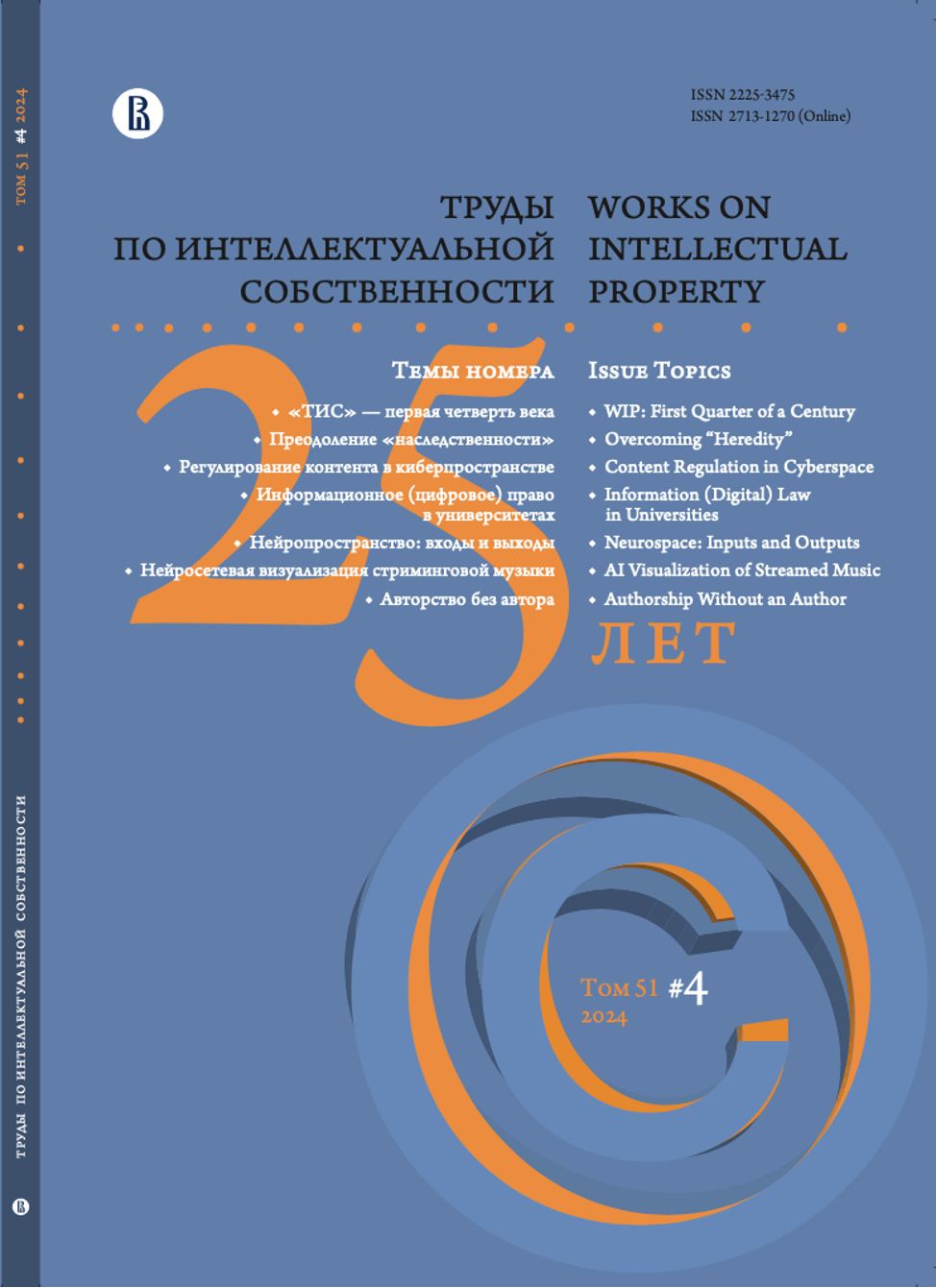NEUROSPACE AND HUMAN RIGHTS: DISCUSSION ASPECTS
Abstract
Recently at the universal and regional international legal levels the possibility of considering “neurorights” in the context of human rights and freedoms has been discussed. The United Nations has put “neurorights” on the agenda of the XXI century. The scientific discussion is connected, first of all, with the need to develop a source of international law on “neurorights”, as well as with the inevitable reconceptualization of human rights and sources of international law in relation to neurotechnologies. Thus, the NeuroRights Foundation in 2022 presented a report “International Human Rights Protection Gaps in the Age of Neurotechnology” (“International Human Rights Protection Gaps in the Age of Neurotechnology”), which examines international legal gaps in existing UN human rights instruments in connection with the emergence of “neurorights”. A number of technologically advanced states, such as China and the United States, are actively utilizing the possibilities of “neurotechnology”, but in the absence of international law norms of a “hard law” or “soft law” nature, the observance and guarantee of the protection of human “neural rights” have been jeopardized. The use of modern technologies in this context inevitably leads to the need for research in ethical and legal aspects, since “neurorights” affect the “subjectivity of the person”, i.e. the mental component, which can be influenced. It is suggested that the United Nations and UNESCO have a special role to play in defining the international legal regime of “neurorights”. An important step towards solving the existing problems in “neurospace” was taken by the United Nations Educational, Scientific and Cultural Organization in April 2024, when a Working document towards a draft text of a recommendation on the ethics of “neurotechnology” (“Working document towards a draft text of a recommendation on the ethics of neurotechnology”) was prepared.


